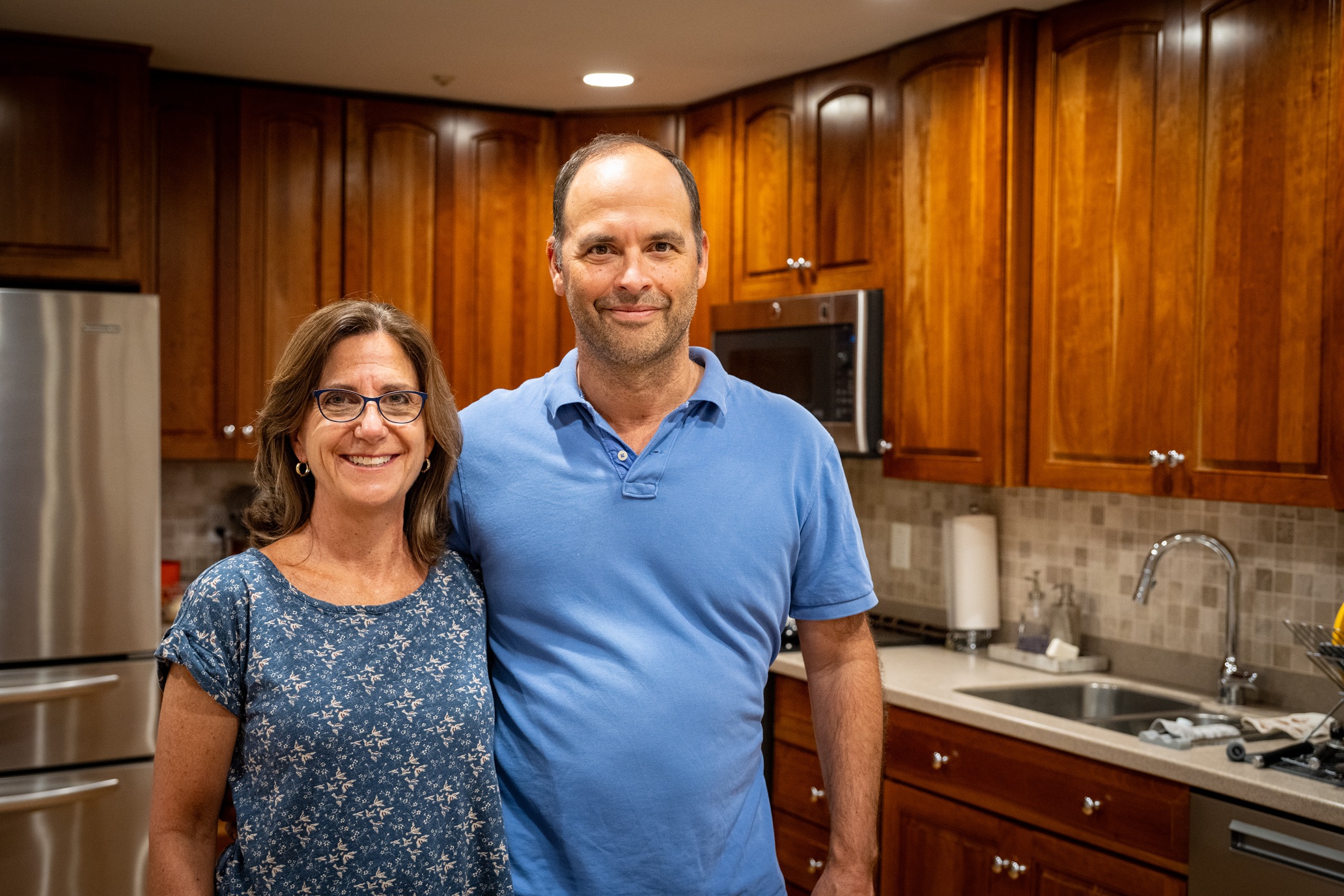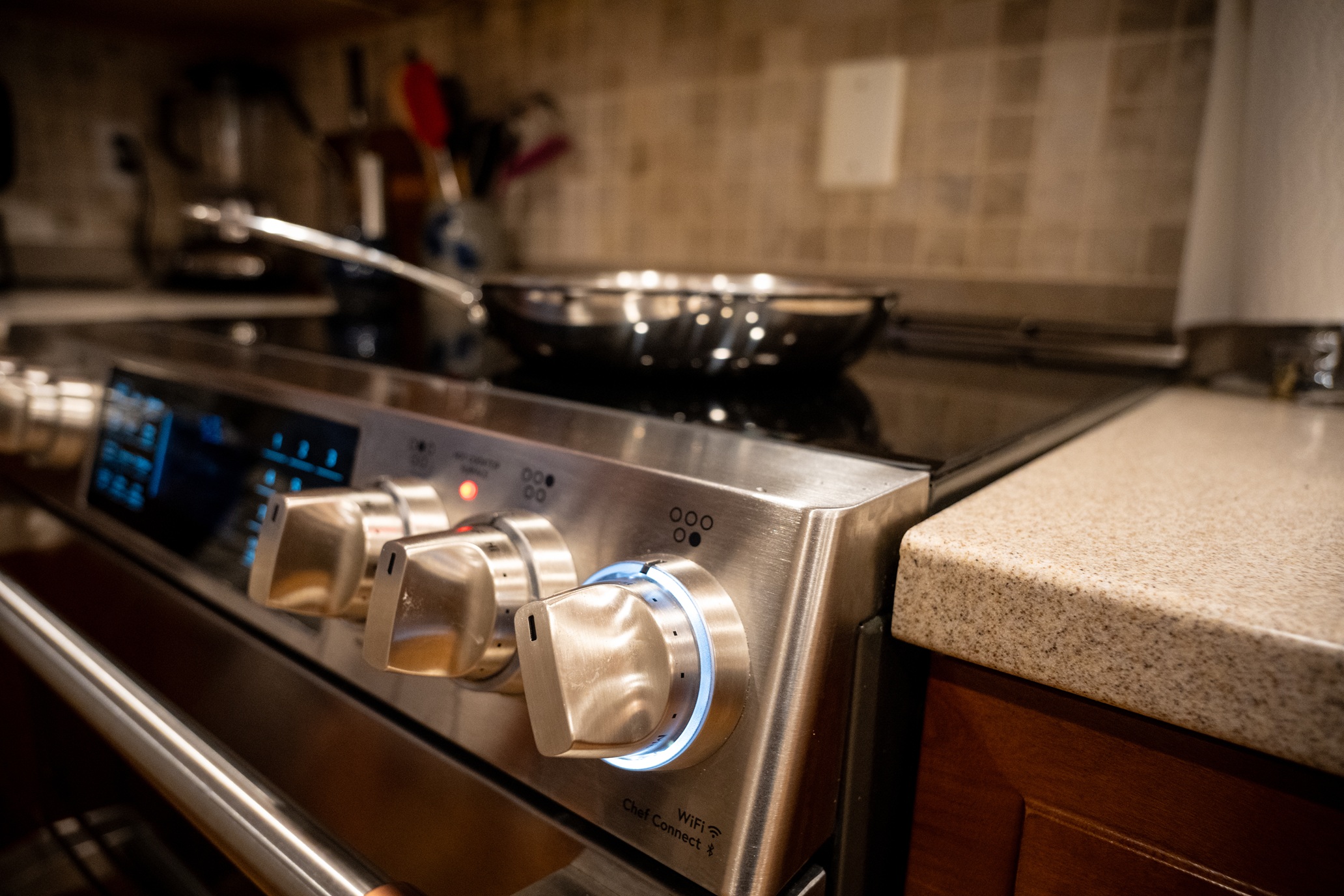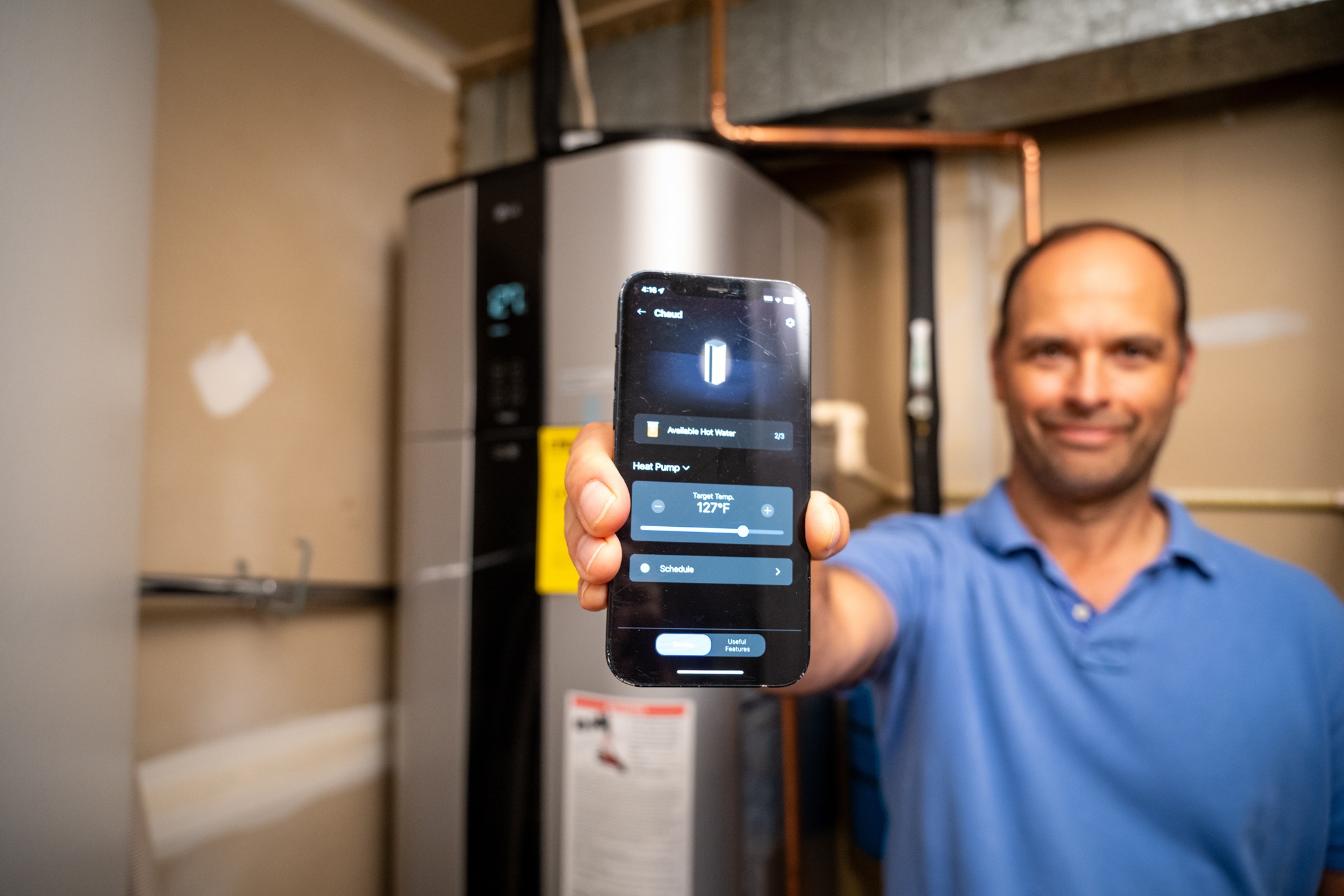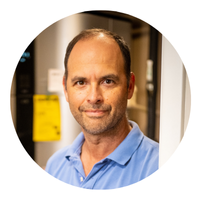Written by Jeff Warrington, Fairfax County resident
 Reston resident Jeff Warrington has been on a journey to make his townhome more energy-efficient and fully electric. Through thoughtful upgrades like weatherization, a heat pump water heater, and an induction stove, Jeff and his wife have reduced their energy use by 21% in the first year and cut utility bills even more since — while enjoying a more comfortable and sustainable home.
Reston resident Jeff Warrington has been on a journey to make his townhome more energy-efficient and fully electric. Through thoughtful upgrades like weatherization, a heat pump water heater, and an induction stove, Jeff and his wife have reduced their energy use by 21% in the first year and cut utility bills even more since — while enjoying a more comfortable and sustainable home.
Read our interview where Jeff reflects on his motivations, challenges, and the resources that helped him along the way!
How long have you lived in Fairfax County and what is your favorite part of living here?
I moved to Fairfax County back in the mid-nineties and have lived here ever since. My favorite part is how accessible it is for bicyclists. Even when I lived in Centreville and worked near Tysons, I was able to combine my favorite form of exercise with my commute. Thirty years later, we have many more connecting trails and safer road crossings that make me happy to call Fairfax County my home.
When did you buy your townhome and what motivated you to go electric?
In 2019, my youngest went to college and my wife and I began to accept that our kids really were adults. My wife was eager to downsize and to simplify our lives. Going fully electric really wasn't the goal in the beginning; I was just trying to spend less on utilities and generally waste less energy. I'm an engineer, so minimizing waste and the associated costs was my original goal and it came very naturally. As I learned more, I realized that going fully electric allowed me to replace inefficient appliances with safer ones that cost less to operate and maintain.
Where do you go for information on what to do and how to do it?
Co-workers initially connected me to the idea that there are contractors who specialize in making homes more efficient by making them more comfortable. I had no idea how much more comfortable it would become. Then in 2024, when I was researching my options for replacing the aging water heater, I spoke with two Go Electric DMV volunteers at a sustainability meeting at Meridian High School. Their understanding of the issues, and the possibilities, motivated me to install a heat pump water heater which produces more hot water but uses a third of the energy of the one that came with my house. The coaches at Go Electric DMV are now my best resource.
Tell us about a few of the energy improvements you've made.
In 2011, I got a home energy audit, but the recommendations seemed more expensive than I was prepared to undertake with college costs looming. I also lacked any way to appreciate the potential savings. Eleven years later, equipped with a full year of my utility costs for the new house, I hired another home energy auditor recommended by another coworker. This auditor guaranteed the weatherization changes would pay for themselves in utility bill savings within 10 years. So, over the last 3 years, we’ve weatherized the attic, replaced the water heater, switched to an induction stove, and finally bought an electric vehicle (EV).

What type of savings are you seeing so far in KWh and $$?
I have a spreadsheet with all our utility costs and our average monthly electric bill dropped from $143 to $97 even while our rates increased and we've become a little more cavalier with the thermostat. When I added up the kilowatt-hours for each of the 12 months before I started making changes, I got 14,402. The next 12 months totaled 11,334, a 21% reduction. Motivated by that success, I made a few more efficiency improvements, most notably the water heater, and I have since gotten below 8,000 kilowatt-hours (KWh) for a year ($97/month). It’s starting to rise now that we have the EV, but I only have two months of data on that.
Have you noticed any other changes in comfort or quality of living since you made those upgrades?
Yes, my wife's primary motivation for approaching a professional was because the house felt drafty when we moved in and setting the thermostat higher or lower took at least an hour to make an appreciable difference. I was also tired of having to operate and empty a noisy dehumidifier in the basement to keep the humidity under control.
Are there any future upgrades or changes you're considering to improve your home further?
I'd been postponing solar panels because the roof was old. After we replaced the shingles last year, I signed up for Solarize Virginia. Our home inspection also revealed that the HVAC was installed in 2006 so it’s likely to need replacement in the next few years. I'm already prepared with the criteria that are important to me in a replacement, now that I understand more of the HVAC industry terms and acronyms.

You've signed up to be an energy coach with Go Electric DMV— what does that mean?
I appreciated the help I got from the Go Electric DMV volunteers so much and found the material so compelling that I enrolled in the foundational course from Rewiring America. The instructor-led weekly classes and our course work covered weatherization, heat pumps, whole home electrification approaches, all while emphasizing the importance of listening for clues about what people really want. It all means that I can better share what I've learned with others who are interested in lowering their energy bills, replacing fossil fuel systems, making their house more comfortable, or just replacing inferior systems with better ones.
What advice would you give other homeowners to help them on their journey? What were the biggest challenges you faced?
I think the smartest thing I did was ask for help. If I had continued to surf the internet every night trying to compare all the options, I would still be lost in too much information that wasn't organized in a way that would help me. There are good resources and planning tools out there, but to find them it took one-on-one conversations with people who care. Now I can appreciate sites like the Sustain Fairfax Challenge and Rewiring America's Personal Electrification Planner, but there’s no substitute for talking to someone you can trust.


